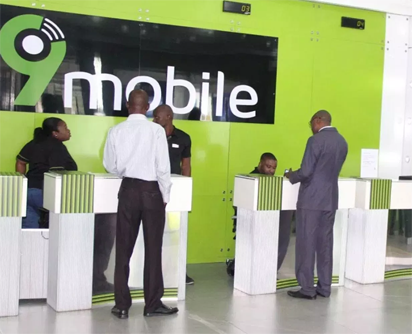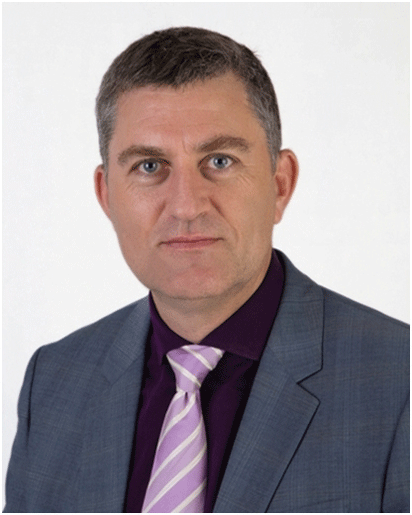Tech
All you need to know about 9mobile takeover by Teleology
It was as if this time would not come. At some point a likelihood of the jinx that befell the country’s national carrier, NITEL, leading to the unbundling sale of its assets, was starring 9Mobile in the face.But finally, after about eight months when it made the initial $50 million non refundable deposit to acquire 9mobile, Teleology holdings has been given final approval of no objection by the Board of the Nigerian Communications Commission (NCC) to own the telecommunications company.
The company also immediately, constituted a new board of directors to manage the affairs of the company bidding the interim board which held forth while the bid process and payment negotiations lasted, farewell.

The new board members included Nasiru Ado Bayero, Chairman; Asega Aliga, Non Executive Director; Adrian Wood, Non Executive Director; Mohammed Edewor, Non Executive Director; Winston Ndubueze Udeh, Non Executive Director; Abdulrahman Ado Executive Director and. Stephane Beuvelet who is the acting Managing Director.
According to Teleology, issuance of final approval of no objection by the NCC, means that the technical and financial bids Teleology submitted for 9mobile met and satisfied all the regulatory requirements. One of the new board members, Mr Mohammed Edewor, said Teleology is pleased with all out-going members of the Board for helping to shepherd 9mobile through the critical transition phase it has passed through since July 2017.
He said: “For us, the composition of the new Board of Directors is another significant milestone, and this follows the issuance of final approval of no objection by the Board of the Nigerian Communications Commission (NCC) to the effect that the technical and financial bids Teleology submitted for 9mobile met and satisfied all the regulatory requirements. This is indeed the dawn of a new era in the evolution of the 9mobile brand in the Nigerian market.
The new Chairman of the Board, Alhaji Nasiru Ado Bayero also said: “As we begin this new epochal phase, we wish to thank all the employees who built this viable business. Our debt of gratitude also goes to our subscribers even as we assure them to get ready for real best-in-class additional value for their relationship with the 9mobile brand”
Rough journey to acquisition
The journey that led to the joy which Teleology expresses now as authentic owners of Nigeria’s 4th telecom operator, 9mobile, started on a very rough pathway.
The company alongside other 15 interested bidders, indicated interest to buy the telco, as far back as October 2017.
However, after Backlays Africa and other stakeholders including the NCC and CBN, relegated 14 bidders, leaving Teleology and Smile Communications as last two serious contenders, heavy confusion rocked the sale process.
Although Backlays Africa pronounced Teleology as the winner (Preferred bidder) issues like its technical competence, operational capability and general strength of the organisation surfaced, causing unnecessary delay. At a point it was difficult to say who the preferred or reserved bidder was between Teleology and Smile Communications.
Consequently, 9mobile, suffered a loss in market share estimated at N5.5 billion in six months, occasioned by the confusion and delay in the sale of the company.
Market share and revenue loss
In fact, not only did it lose market share, it also lost ground in both voice subscriber base and internet users.
Analysing NCC’s Monthly Internet Subscribers data for December 2017, showed that 9mobile lost 68,341 internet users while competitors like MTN, Airtel and Globacom gained 2,642.666; 911,040 and 87,538 respectively.
While their gains took them to 36,069,597; 23,985.203 and 26,997,817 internet subscriptions respectively, 9mobile’s loss reduced its internet users to 11,338.839 as against 11,407,180 in November same year.
Worse is the rate at which the company lost market share and subscriber base. Data from NCC showed that, the once innovative company that boasted of over 21million subscribers was as at the time of review, hovering between 16 and 17 million subscribers, indicating decline of about four million subscribers in just six months.
N5.5billion lost
Using the last Average Revenue Per User (ARPU), statistics from NCC, 9mobile, at the time, was losing approximately N5.5billion in those four million subscribers.
ARPU, refers to the financial performance benchmark in the telecoms industry that measures the average monthly spending on each SIM card. The commission, in 2016, recorded that average monthly revenue generated by operators from each telecom subscriber, is estimated at around $4.5 (N1,372) with the official exchange rate currently at N305 to the dollar, at the time.
Going by that figure, the telecom company may have lost well over N5bn, in addition to the huge revenue it must have also lost in dropping 68,341 internet users in December.
However, when the dust of those issues settled a bit, Teleology was affirmed the preferred bidder and on March 21, 2018 it paid the initial $50 million non-refundable deposit as a demonstration of its commitment to acquire the telco. It was therefore given a 90-day timeline to pay the balance.
On expiration of the deadline, it was rumoured that the inability of the Central Bank of Nigeria (CBN), Nigeria Communications Commission (NCC) and other stakeholders to reach a meaningful conclusion on the matter, stalled the final takeover.
Meanwhile, Teleology was granted an extension of 20 days to tidy up the payment process and take over 9mobile.
Before the expiration of the 20 days, the NCC has hinted that even with the final payment, the technical capability of Teleology to manage 9mobile successfully must be put into serious forensic test before operating license could be transferred to it. That also threw another round of confusion and needless panic.
However, having finally issued the approval of no objection, it could be that the NCC has tested and approved Teleology’s technical capability.
History of 9mobile
9mobile began as Emerging Markets Telecommunications Services, EMTS, which first traded as Etisalat Nigeria. Duly incorporated under the laws of Nigeria in partnership with Mubadala Development Company and Etisalat of the United Arab Emirates, it acquired the Unified Access Licence from the Federal Government in January 2007. The licence includes a mobile licence and spectrum in the GSM 1800 and 900 MHz bands.
The telecom company made the first official call on its network on March 13, 2008 in the presence of officials from the Nigerian Communications Commission and the Senate. In September of same year, it kicked off commercial operations with the 0809uchoose campaign which enabled Nigerians choose numbers special to them as their mobile numbers.

Stephane Beuvelet9mobile new MD
Network rehabilitation
In April 2013, the company announced it would invest over $500 million to expand its network, enabling further potential market growth of 17 per cent and went ahead to obtain a medium term loan of $1.2bn from a consortium of 13 banks, which it used to refinance an existing $650 million loan and fund a modernisation of its network. The loan, which involved a foreign-backed guaranty bond, was for it to finance a major network rehabilitation and expansion of its operational base in Nigeria.
However, since 2016, the consortium of banks has been having a running battle with the mobile telephone operator over repayment of the loan facility. Although the company said it consistently serviced the debt until it began to experience cash flow problems following the steep depreciation of the naira and the impact on its foreign currency denominated exposure..
How Etisalat left
Following breakdown in negotiations, the company’s two foreign investors, Emirates Telecommunications Service and Mubadala withdrew their interest in the concern, compounding the problems of EMTS.
Chief Executive of Etisalat International, Hatem Dowidar, while announcing the withdrawal at Abu Dhabi Stock Exchange, gave Etisalat Nigeria just three weeks to use the brand name and phase it out completely.
Its technical partners, Mubadala, also followed suit, leading to a massive resignation of top executives of Etisalat Nigeria and the chairman of the board.
Regulatory interventions
At that point, it appeared a takeover was most likely but the intervention of Nigerian telecom and banking regulators, the Nigerian Communications Commission and the Central Bank of Nigeria, saved Etisalat Nigeria from being taken over by a consortium of Nigerian and foreign banks.
The two regulators persuaded the banks to rethink their threat and give Etisalat a chance to renegotiate the loan’s repayment schedule. Further negotiations brought about a new board comprising of appointees of the consortium, the telecommunications company and the regulators and subsequently a new name 9Mobile.
However, having seen that a new board and name change were not all it required to settle the loan which has been the heart of the matter, the regulators, the consortium, represented by its financial adviser, Backlays Africa and the board, agreed to put the telecom company for sale.
Incidentally, different interests, litigations, more debt claims among other bottlenecks, kept the sale process in limbo, for a long time.
Follow us on social media:







